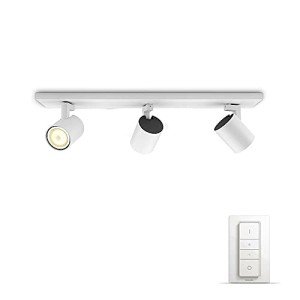How To Outsmart Your Boss With Traditional Lighting UK
Traditional Lighting in the UK: A Comprehensive Overview
Traditional lighting holds a treasured place in the homes and public spaces of the United Kingdom. With its ability to stimulate fond memories, appeal, and heat, traditional lighting fixtures use not only visual appeal however also useful value. This article looks into the various kinds of traditional lighting common in the UK, their history and advancement, popular styles, and how to include them into modern decoration.
A Historical Perspective on Traditional Lighting
The advancement of lighting in the UK has been extensive. From the flickering flames of candles and oil lamps to the introduction of gas and electric lights, the journey is as remarkable as it is enlightening.
Secret Milestones in Lighting History:
- Candles (Before 1800s): The earliest form of synthetic light, utilizing tallow or beeswax.
- Oil Lamps (Late 18th Century): These became popular in homes and theaters, offering brighter illumination than candle lights.
- Gas Lighting (Early 19th Century): Revolutionized public and street lighting before electrical energy took precedence.
- Electric Lighting (Late 19th Century): Marked the transition to modernity, with incandescent bulbs slowly replacing older kinds.
Each of these advancements led the way for traditional lighting, which still integrates ancient methods into contemporary designs.
Types of Traditional Lighting
Traditional lighting can be classified into several unique types, each with its unique attributes.
1. Chandeliers
Chandeliers are often the focal point of a room. They come in various styles, from ornate Victorian designs to easy, rustic designs.
Popular Features:
- Crystal embellishments
- Iron framework
- Numerous bulb types
2. Wall Sconces
Wall sconces supply both creative style and soft lighting. They can be utilized in corridors, living rooms, or restrooms, boosting the environment of an area.
Common Styles:
- Candle-style sconces
- Brass or iron fixtures
- Vintage-inspired designs
3. Table Lamps
Table lamps embody the flexibility of traditional lighting as they can suit any room. Ranging from simple styles to elaborate pieces, they are ideal for reading nooks, side tables, or desks.
4. Floor Lamps
Comparable to table lamps in style and function, floor lamps can develop cozy corners in a home. Vintage designs typically include tripod bases or elaborate patterns.
5. Lanterns
Though frequently associated with outdoor settings, traditional lanterns can likewise be utilized inside for a rustic touch. They come in numerous products including wood and metal.
Integrating Traditional Lighting into Modern Decor
In a world increasingly leaning towards minimalism and modern designs, traditional lighting still holds its ground. The key is to preserve a balance. Here are some tips for incorporating traditional lighting into a contemporary home:
1. Mix Styles
Integrate traditional lighting with modern furniture to produce an eclectic room. For instance, a vintage chandelier can be hung above a streamlined dining table.
2. Use Dimmer Switches
To manage the ambiance, set up dimmer switches that enable soft lighting, which matches both traditional and modern interiors.
3. Choose Mixed Materials
Select lighting fixtures that combine various products, such as a wooden lamp with a metal or glass base, to bridge the gap in between old and new.
4. Highlight Architectural Features
Use traditional fixtures to highlight unique architectural functions in your house. For circumstances, hanging a vintage lantern in a hallway with exposed brick boosts its rustic appeal.
5. Incorporate Natural Elements
Select styles that integrate natural products such as wood or wrought iron. These aspects tend to blend well with modern decoration while maintaining a traditional style.
Table: Comparison of Traditional Lighting Types
Lighting Type
Description
Typical Materials
Typical Settings
Chandeliers
Decorative ceiling fixtures, frequently ornate
Crystal, metal
Dining-room, ballrooms
Wall Sconces
Mounted fixtures that offer ambient light
Brass, iron
Hallways, living rooms
Table Lamps
Portable lamps for tables and desks
Glass, ceramic
Bedrooms, offices
Floor Lamps
Standalone lamps for corner lighting
Wood, metal
Living rooms, dens
Lanterns
Rustic or vintage light sources
Wood, metal
Patios, gardens
Often Asked Questions
1. What is traditional lighting?
Answer: Traditional lighting describes light that embody historic or timeless styles, often identified by the usage of elaborate products, elaborate patterns, and a warm visual.
2. How can I keep traditional lighting fixtures?
Answer: Regular cleaning and occasional deep cleaning are vital. For fixtures with glass or crystals, use a moderate glass cleaner. For metal components, guarantee you utilize suitable cleaning solutions that will not damage the surface.
3. Are traditional lighting fixtures energy-efficient?
Answer: Many traditional fixtures can accommodate modern LED bulbs, which use better energy effectiveness. Constantly inspect compatibility when switching to LED alternatives.
4. Can I mix traditional lighting with modern design?
Answer: Yes, blending traditional lighting with modern design can create an uniquely inviting area. Affordable Lighting UK is important; select complementary designs to preserve visual harmony.
5. What is the very best way to select traditional lighting for my home?
Response: Consider your home's general design, the function of the space, and individual taste. Take measurements to guarantee proper sizing and select materials and colors that balance with existing design.
Traditional lighting works as an enduring link to history, workmanship, and looks, proving that ageless styles have their rightful place, even amidst developing trends. Understanding the various kinds of traditional lighting and their application can help homeowners produce welcoming spaces that show both elegance and heat, seamlessly blending the past with the present.
